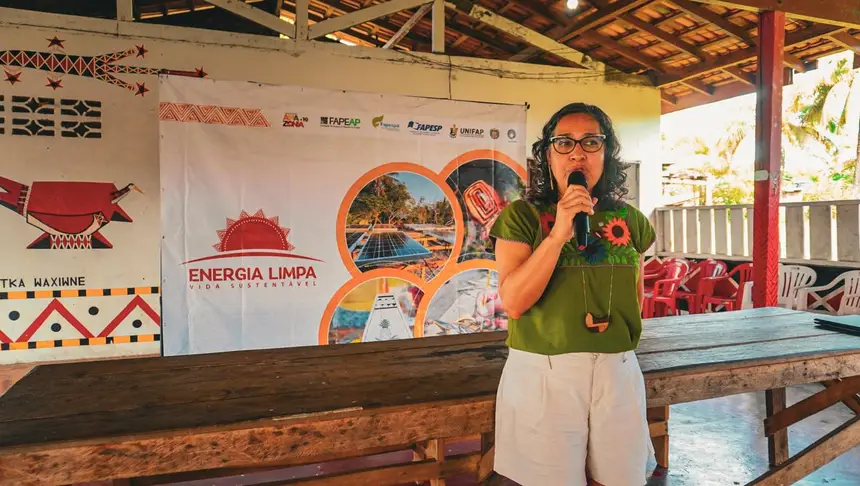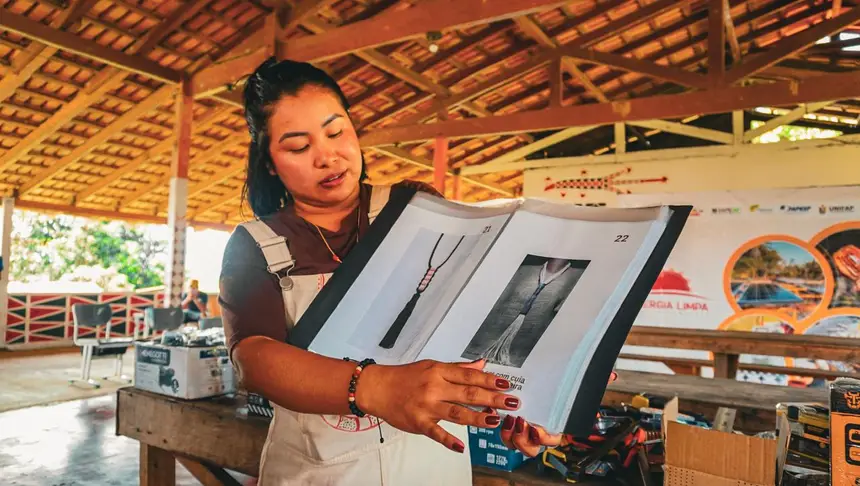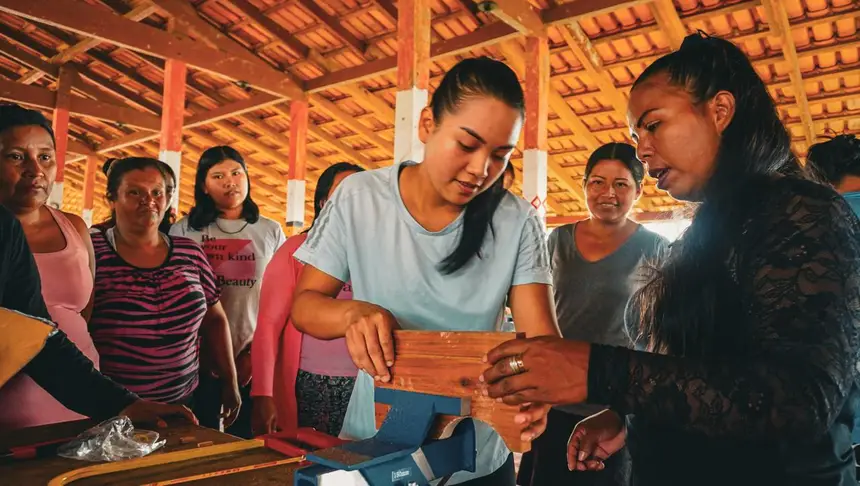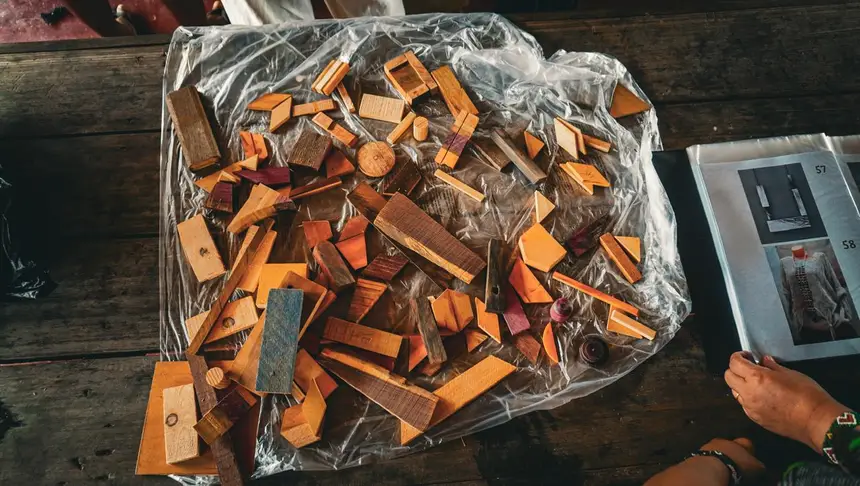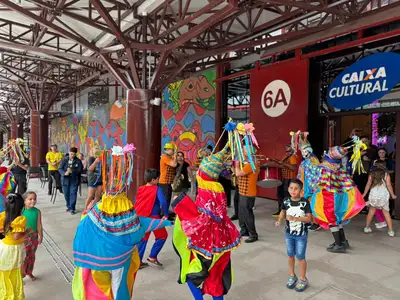Fapespa partners with a creation workshop using reclaimed wood in the Kumenê Village
This action is part of the Clean Energy, Sustainable Life project, developed under the 'Amazon Initiative +10', funded by the Amazon Foundation for Support of Studies and Research.
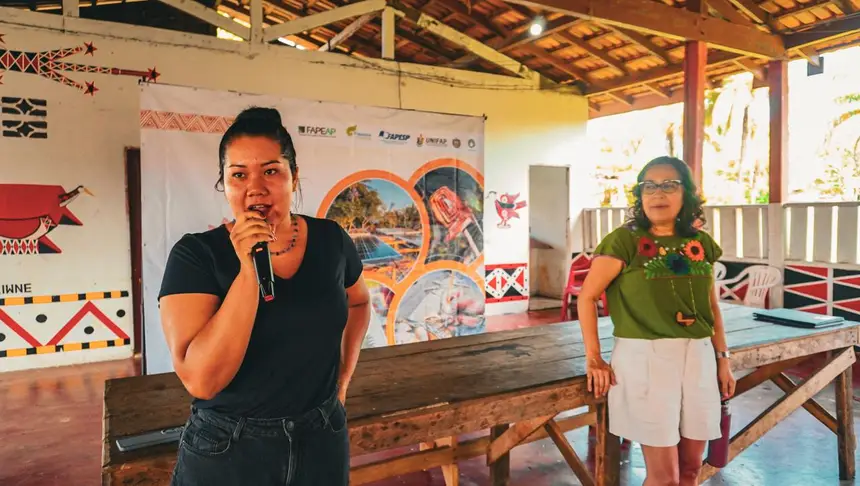
With the proposal to reuse wood from tree pruning to produce pieces such as bio-jewelry, necklaces, earrings, bracelets, or even objects that can be used in other types of handicrafts, such as ceramics, basketry, or in the textile sector, the Creation Workshop with Reclaimed Wood trains indigenous artisans. The idea is to transform the natural resource into new opportunities for income generation for the participants.
This action is part of the Clean Energy, Sustainable Life project, developed under the Amazon Initiative +10, in partnership with the Amazon Foundation for Support of Studies and Research of Pará (Fapespa) and executed by Unifap, Ufopa, and Unicamp.
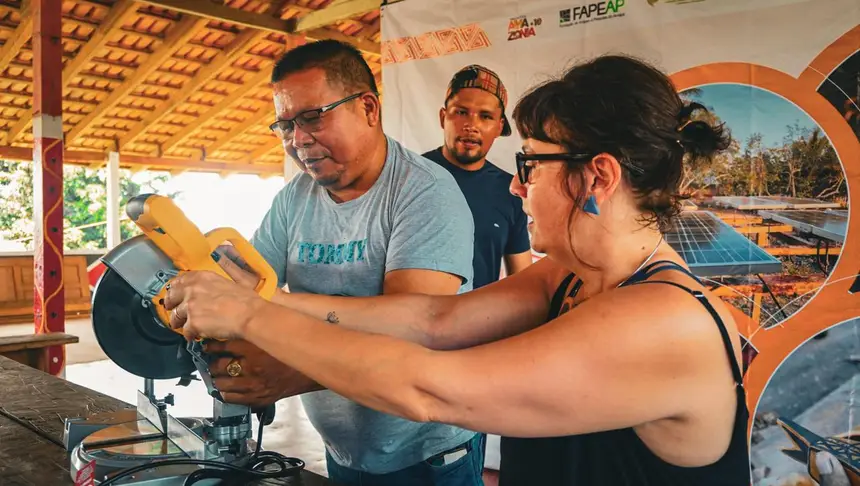
Amazon Initiative +10
The Amazon +10 is an initiative of the National Council of State Foundations for Research Support (Confap), of which Fapespa is a part, and the National Council of Secretaries for Science, Technology, and Innovation (Consecti), in partnership with the National Council for Scientific and Technological Development (CNPq). The program supports projects that promote sustainability and socioeconomic development in the Amazon region, and the Clean Energy, Sustainable Life Project is one of those supported by Amazon +10.
The project aims to promote environmental sustainability and economic development in indigenous communities through the use of renewable energy. The initiative seeks to provide clean energy but also strengthen the productive chains of local artifacts, contributing to the autonomy and cultural preservation of the communities.
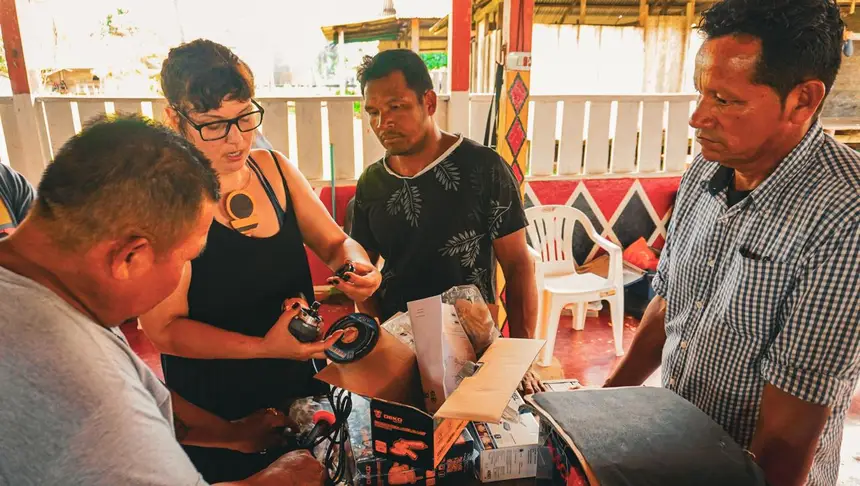
The initiative will meet the demand of indigenous people from Baixo Oiapoque - Indigenous Lands Uaçá, Juminã, and Galibi - in addition to the Indigenous Lands in the Trombetas-Mapuera and Nhamundá-Trombetas regions, located in the North Channel area.
“The Amazon Initiative +10 brings science even closer to the demands of Amazonian society. Science is an important vector for sustainable and balanced development. In this sense, the state government, through Fapespa, increasingly seeks partnerships to enable projects that combine traditional knowledge with new technological developments to boost Bioeconomy,” evaluates Fapespa manager, Marcel Botelho.
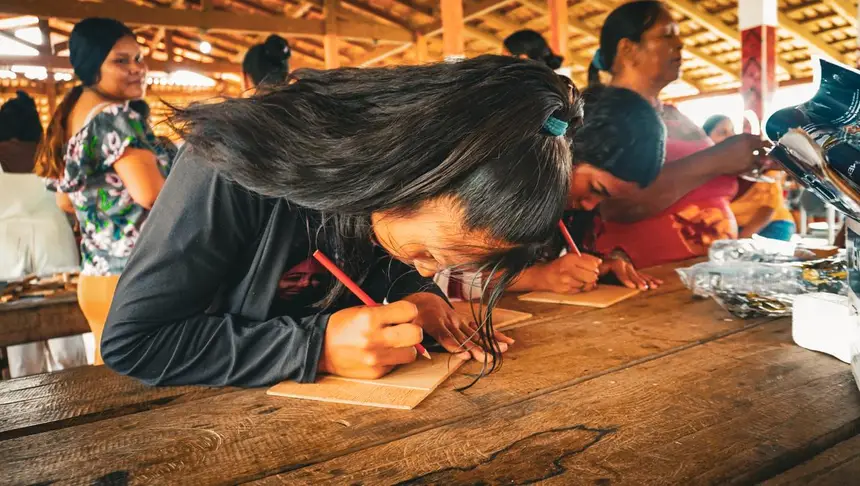
Creation Workshop does not involve cutting new trees
All the material used in the course is already available in the villages; the course started on Saturday (12) and will continue until July 19, in the Kumenê Village, in the municipality of Oiapoque (AP).
The Clean Energy, Sustainable Life project articulates decentralized energy solutions, valuing indigenous technical and scientific knowledge, and promoting community-based economies in indigenous territories of Baixo Oiapoque. The coordination is by Dr. Elissandra Barros from the Federal University of Amapá; Dr. Lílian Rebellato from the Federal University of Western Pará; and Dr. Artionka Capiberibe from the University of Campinas.
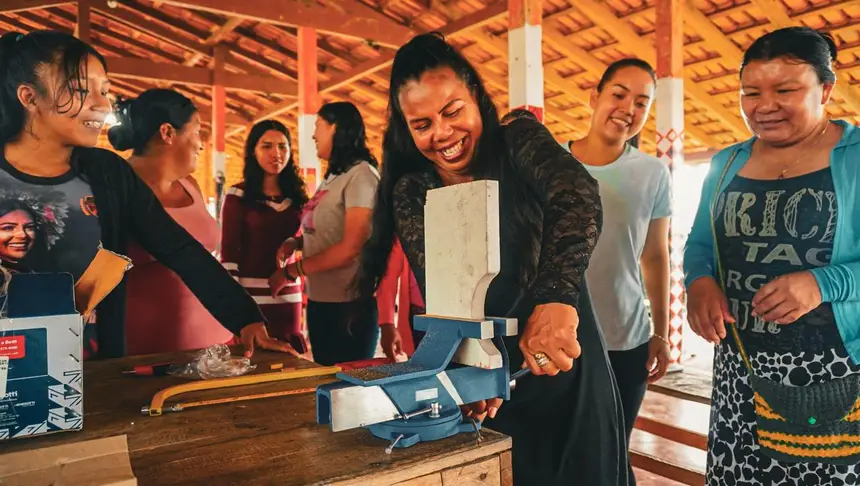
The Creation Workshop is taught by associate researchers Marília Giesbrecht, Keyla Palikur, and coordinators Elissandra Barros and Artionka Capiberibe in the Kumenê Village (Oiapoque) and aims to consolidate the continuity of the Project Axis dedicated to fostering the productive chains of handicrafts, mainly linked to ceramics and wood.
According to the coordination, the goal is to strengthen both the transmission of knowledge and manual skills and the ability to integrate precision electric tools — circular saws, routers, and sanders — contributing to the technical and economic autonomy of artisans.
“The main idea is to cut, glue different woods, making marquetry, a finishing technique that keeps things natural and can add significant value to the pieces. For this, we propose to bring some basic manual electric woodworking tools, aiming to develop the pieces in marquetry,” explains Marília Giesbrecht, one of the invited researchers.
The project has two phases
According to the project team, the initiative will be developed in two phases. In the first, artisans who already master traditional techniques — especially among the Palikur-Arukwayene — will be guided in the use of electric tools, such as saws and sanders. The goal is to make the process more agile and ergonomic while improving the techniques already practiced daily. In the second phase, the focus will be on reusing wood waste, such as leftovers from larger pieces or pruning wood available in the territory.
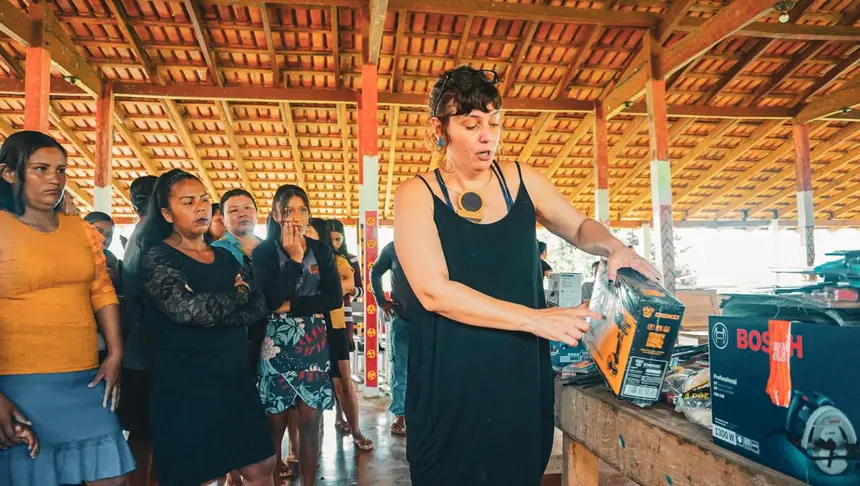
The choice of Kumenê is not casual; it is the main village of the Palikur-Arukwayene, a people with a history of artisanal wood production and, at the same time, a beneficiary of energy survey activities and where the installation of photovoltaic panels is also planned. Electric energy emerges as a tool for innovation and promotion of productive autonomy and also as a support element for the productive independence of the involved communities.
The methodology combines theoretical instruction modules on electrical safety and equipment maintenance, practical demonstrations of cutting, carving, and finishing, and co-design sessions with prototypes of artifacts and bio-jewelry. At the end, each participant will deliver a signed piece documented on video, contributing to the Project's Digital Collection.
“This workshop is part of one of the axes, which is income generation within the populations we are working with to maintain a tradition of producing wooden artifacts, which is already known, but innovation also comes from reusing what is already worked on, thus giving the opportunity for new generations to also sustain themselves within their territory without the need to break emotional, family, and cultural ties,” explains Dr. Lílian Rebellato from Ufopa.
*With information from Gabriel Baena / Project Ascom


